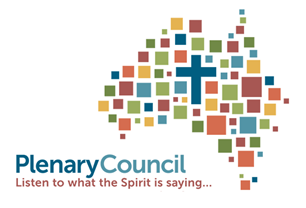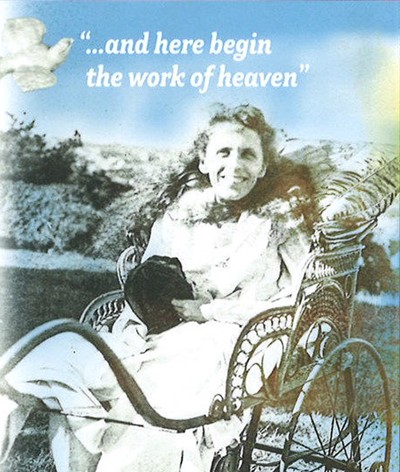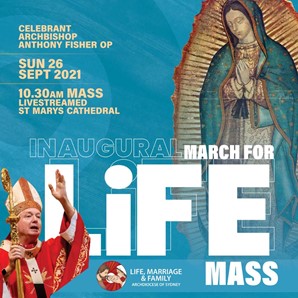HOMILY FOR MASS OF THE 26TH SUNDAY OF ORDINARY TIME YEAR B

Live-streamed from St. Mary’s Basilica, Sydney, 26 September 2021
We like to think of Him as “Gentle Jesus, meek and mild”—for He is indeed love and mercy personified. But as Charles Wesley’s hymn continues, “Gentle Jesus, meek and mild, look upon a little child, pity my simplicity”. Aware as He is of the vulnerability and innocence of the little ones, Our Lord pulls no punches when it comes to those who hurt or corrupt them. “Anyone who is a stumbling block for one of these little ones,” He declares, “would be better thrown into the sea with a great millstone round his neck.” (Mk 9:38-48, v. 42) Gentle Jesus doesn’t often talk this way, but sometimes truth and justice demand hard sayings. Elsewhere in Mark’s Gospel He says “All sins can be forgiven, save the blasphemy against the Holy Spirit”—that refusal of contrition and absolution that makes a grave sin ‘eternal’ (Mk 3:28-29). Of His betrayer He says, “Better for that man if he had never been born” (Mk 14:21). Again today, better to enter heaven blind and crippled than go ably to hell (Mk 9:43-48)! And later: “It’s easier for a camel to pass through the eye of the needle than for a rich man to enter God’s kingdom” (Mk 10:25)—words James echoes in his Epistle (Jas 5:1-6).
If God’s favourites are the poor and powerless, like the little child Jesus put in front of us last week (Mk 9:36), then God is particularly appalled when their vulnerability is exploited, their innocence abused, violence done to their bodies or souls. And so must be every Christian. Hearing this text will trigger for many memories of the Royal Commission into Institutional Responses to Child Sexual Abuse and all that provoked it. We are sickened by the wicked behaviour of some clergy, religious or lay-workers, frustrated by the failures of some church leaders to respond, dismayed by the damage done to the Church’s credibility and so the progress of the Gospel. Above all, our hearts go out to the victims and their families, for like Christ we love our little ones and are protective of them. We are determined to do all we can to bring survivors justice and healing and to prevent any recurrence of such things in future.
So Jesus’ words today are not needlessly harsh. He is all too aware of human weakness and wilfulness, how vulnerable some are and how hurtful others can be, how we can be obstacles to each other’s happiness and spiritual growth. Since the child sexual abuse crisis of the 1960s, ’70s and early ’80s there’s been plenty of other violence too. We think of the high rates of domestic violence, homicides against women, and other violent crime.
We think of abortion, a kind of homicide which for two years now has been allowed right up to birth, and the trivialisation of unborn life in the abortion clinics and embryo labs. And of the discrimination suffered by disabled people, even in the era of the NDIS, with ‘search and destroy’ genetic screening before birth and other obstacles after.
We think of the enduring disadvantage suffered by indigenous Australians, which pays out in lower life-expectancy, higher incarceration rates and deaths in custody. Or the terror of asylum seekers and trafficked women and children, all too often meeting indifference from those who could be saving them. Or the homeless, mentally ill and suicidal. We think of the march of euthanasia, coming soon to a parliament near you, revealing a culture so conflicted that it endures major disruption to protect the elderly, sick and infirm from COVID, and yet also prosecutes changes to law and practice that will make them vulnerable to being killed not by a virus but a lethal dose. After the century between ‘the war to end all wars’ and ‘the war on terror’, human life seems cheaper, as this world goes…
So, too, we must recognise that the debasement of sexuality since the sexual revolution gave licence and camouflage to predators, removed restraints on many kinds of sexual violence or exploitation, and motored the explosion of internet pornography and addiction. Meanwhile sacramental marriage rates are in freefall, many good-willed people’s marriages fail, and there is widespread doubt about the meaning and sustainability of marriage. Relationships are under stress and families hurting. For all the good things about modernity, there is little doubt that there is a crisis not just of faith but also of practical ideals.

The Fifth Plenary Council of Australia comes at a crisis point in our civilisation when the sanctity of life and love, and Christian reverence for the little ones, the voiceless and powerless, no longer holds sway in law and culture; and where our society has been left bereft of moral moorings and subject to the mood swings of the social media, the influencers and the woke. As Pope Francis reiterated only last week, Christians are urgently called to be a prophetic voice for the little ones in a “throw-away society” that readily disposes not just of things but also of people it deems ‘useless’ such as unborn babies or the elderly and dying. “If only the whole of God’s people were prophets!” Moses cries out today (Num 11:25-29), and our Plenary Council will surely summon the Church in Australia to be a prophetic voice on behalf of God’s little ones.
Of course, there are diverse opinions on what some have called the ‘below the belt issues’, opinions ardently held and forcefully articulated. We know that many people make decisions about these matters from a place of desperation, ignorance, passion or hurt, that can mean reduced responsibility and poor decision-making. We know that however formed some consciences may be by the Gospel, there are many contrary voices and powerful pressures in our culture. And even those with common ideals will sometimes propose different strategies.
The purpose of a Plenary Council, according to Catholic teaching and law, is to organise common pastoral action in response to the needs of God’s people for increase of faith, renewal of morals and observance of Church discipline (CIC 445). So, after the crisis of faith I examined last fortnight, and the crisis of authority I considered last week, we come to the contemporary crisis of morals. How is the Catholic community to be a voice for the unborn, newborn and disabled, for the mentally ill, frail elderly and dying, for the trafficked and refugees, indigenous or homeless—to name some of God’s favourite little ones? With respect to evangelising, educating and lobbying on these great issues, the Church still has much to do.

But its works of mercy—what Jesus describes today as “giving a cup of water”—may prove even more important. Our wonderful local hero, Servant of God Eileen O’Connor, herself as small as a child, disabled and in pain, helped so many of the sick, poor and disabled, and inspired others to do so too. May she intercede for our Plenary Councillors, so that through its religious orders and ecclesial movements, its parish communities of care and institutional social services, it’s family and individual faithful, the Church in Australia does all it can to ensure that the weak are not just protected but supported in every way. Such lived charity can be more effective preaching than any words. As the second-century Christian apologist Tertullian observed regarding what the ancients found most alluring about the new religion: “See how these Christians love each other.”[1]
[1] Tertullian, Apologeticus, ch, 39, sect. 7.

A warm welcome to St Mary’s Basilica, the cathedral church of Sydney, for this livestreamed Solemn Mass of the 26th Sunday of Ordinary Time. Today marks two years since the passage of the Abortion Law Reform Act that confirmed the vulnerability of tens of thousands of unborn babies in this state each year, right up to birth, to a gruesome death at the hands of a shameful industry and a negligent parliament. Now, two years later, it’s people at the other end of life who are in danger, with a bill soon to be introduced into the NSW Parliament to allow the direct killing of people with a terminal illness or assisting them to do this themselves. You can join the letter writing campaign against this latest intrusion of the culture of death at no euthanasia.org.au.
Organised by the Archdiocese of Sydney Life, Marriage and Family team and the team from LifeChoice Australia, this Mass was planned to be held in conjunction with the March for Life. A big thank-you to Rebecca Beard from LifeChoice, Milad Khalil and the 10:10 student leaders, Frances Cantrall from the CultureProject, Bishop Richard Umbers the Episcopal Vicar for Evangelisation concelebrating today, and the several parliamentarians and prolife leaders who are joining this Mass by livestream. Because of current restrictions, there will be an online ‘Life Summit’ in place of the march, which can be viewed via Zoom at 7p.m. tonight at march for life.org.au.
On the eve of the Plenary Council we continue to listen to the Word of God in which the Holy Spirit speaks to the Church, and to implore the Spirit’s wisdom for all the members of the Council. That our ears might be opened, we first repent of any personal goals, ideologies or self-protectiveness that make us resistant to hearing the Spirit’s “still quiet voice”, and especially of our sins…

